For coach Plumb, a winning — and trying — season
At the helm of the London Lightning, he won a third straight league championship. But this one wasn’t pretty. It was a difficult year for coach Doug Plumb — on the court and in the locker room. He details the tumult …
(Photo: Matt Hiscox Photography).
* * *
You’ll get no argument from London Lightning head coach Doug Plumb that it was an imperfect season in the Forest City. Imperfect roster. Imperfect play. Imperfect attitude. Even an imperfect coach.
In the inaugural Basketball Super League (BSL) season, the Lightning were imperfect champions in every way – but, then again, it’s the champions part that matters most.
“You either die the hero or live long enough to become the villain,” Plumb said. “On all my teams, I try to push culture, push winning forward, facilitate accountability and truth. I’ve learned that if you do those things and work hard, good things happen.”
This season, however, tested that belief, as turmoil on and off the court plagued the team at every turn. Plumb carries a lot of lacerations and lessons into the offseason – many will inform his next career step.
But despite the challenges of a season on the brink, one thing remains true: “Anyway, through it all, we still won.”
* * *
BSL officials may deny it – or, then again, maybe they wouldn’t – but the Lightning were sized up for a black hat from the season’s opening tipoff.
Admittedly, much of that was self-inflicted, as the team not only led the league in technical fouls, but also in on-court dramatics. Billy White crumbling to the hardwood. Chris Jones jawing at referees, opponents, and fans alike. Jermaine Haley Jr. begging and pleading for an extra foul. Some games featured more action in the tunnel than while the clock was running.
That made this team exhausting to play, to coach, to watch, and, yes, to officiate.
Perhaps the team should have swapped the middle T on their jerseys with a target. London led the league in technical fouls and was the only team that saw a coach and/or player suspended; Plumb, Jones, and Jeremiah Mordi all served one-game suspensions – the latter two in the playoffs.
You read that correctly. No other team had a coach or player suspended during the regular or postseason. That’s difficult to believe given all four NBL Canada teams brought the now-defunct league’s, shall we say, overly verbal on-court style with them to the BSL.
So, it’s fair to say you didn’t need to be wearing a tinfoil hat to believe the league was paying closer attention to the Bolts than any other squad.
“That felt like the case,” Plumb said. “I won’t get into that, though.”
Instead, the head coach offered a heavy critique of his performance – an oddity, one might think, for a man who just delivered London a third consecutive title. But then again, Plumb doesn’t want to just win; he wants to win the right way.
“At the end of the day, heavy is the head that wears the crown,” he said. “I need to look in the mirror and be better. I didn’t make the right decisions from a roster standpoint. I should have trusted my gut as I always have in the past. Every time that I’ve ever done that, we’ve won, and we’ve won convincingly. This year, I broke a couple of my cardinal rules.”
(Photo: Matt Hiscox Photography).
* * *
Fans knew something was different about this team. It wasn’t that the players lacked talent – it was that they were too often, well, unlikeable. Gone was the fun, the personality, the swagger that London fans were used to seeing from this franchise. In its place was an often whiny, bickering collection of players too talented to let the little things bother them. But they did.
“This season was madness. It was such a whirlwind,” Plumb said. “From trading our supposed best player early on (and fans getting on me for it), to bringing in a guy I knew was more of a winner than the guy I traded, to the league being so inconsistent, to a lot of roster moves, to losing games we shouldn’t have lost because of straight-up ego and lack of attention to detail.
“In terms of coaching, this is the best job I’ve ever done. In terms of roster management, it’s the worst I’ve ever done.”
Injuries. Poor play. Bad attitudes. They all factored into a year that saw tremendous roster churn for London, a usually stable franchise that tweaks its lineup during the season rather than completely overhauls it more than once.
That churn threw the team off balance and kept it from the basics that Plumb preaches – from building comradery to open communication.
“This churn is huge when you talk about everything from a player buy-in standpoint,” he said.
No roster move encapsulated the season more than when the team shipped out flamboyant fan favourite Shadell Millinghaus for the talented-but-troubled Jones in February.
Up until the trade, Millinghaus had cemented himself as a London fan favourite with both his personality and play. When he left The Bud, he took fun with him. In his place, Jones walked in, along with his patented intensity, immense talent, and an uncontrolled temper that kept him from playing this game at its highest level.
For Plumb, Jones was a known-quantity risk who would either make a case as league MVP or create on- and off-court drama. He did both. Ultimately, Jones won the BSL playoff MVP – ironically, named The Audley after the former NBL Canada Commissioner who suspended Jones for the reminder of the season two years ago.
While fans sensed this was an imperfect collection of talent, it was nothing compared to the drama playing out in the locker room.
(Photo: Matt Hiscox Photography).
“We had so many personalities this year,” Plumb said. “Think of it like a pimple – I had to pop the pimple before it became a cyst. All season, we took three steps forward and two steps back. Explosions were going off behind the scenes. Sometimes, instead of stepping on a landmine, I had to throw a grenade at the landmine to blow it up myself. I could handle one person being rogue at a time, but I couldn’t have four going rogue at a time.”
He continued, “I called shit out. Instead of letting things just go unsaid, I said it all. You gotta live the truth. You gotta tell the truth. You gotta be able to handle the truth. I had crazy stuff going on. We’re winning games – be up by 20 – and I have guys fighting on the bench.”
As a rule, Plumb doesn’t bring players back for a third straight year – he wants hunger, a drive to grow bigger than (and eventually exit) the league. A third season, to Plumb’s mind, can lead to a contagious complacency.
This season, Haley Jr., Jones, and Marcus Ottey entered their third seasons with the team. Ottey was dismissed from the team after a clash with Plumb in February (and replaced on the roster with Millinghaus), though he later returned.
“This bit me in the ass this year, because we had issues with complacency and arrogance at times. We had vets with big personalities in the locker room, and there was contention because of a lack of buy-in. Then you have rookies who don’t really understand what’s happening. They see this disgruntledness. If the culture’s not getting pushed top to bottom, and you’re not a self-policed team, then what do you have? A nightmare.”
Part of that process meant a lot of hard conversations behind the scenes.
“You have relationships with these guys. We’ve developed a pretty good winning culture here, but this year, I thought it got eroded at times. There was slippage, for sure. We talked about that a lot throughout the season.
“At the end of the day, however, we figured it out.”
Plumb stressed that it’s important to remember banners fly long after tempers cool and emotions fade.
“When you win a championship together, everything else is water under the bridge. When you look back, the only thing you remember is that you won. You’re bonded for life. You become brothers brought together through championships, so that’s special, for sure.”
(Photo: Matt Hiscox Photography).
* * *
If you know Plumb, or have ever watched him work the sidelines, you recognize the intensity. But during his Lightning tenure, that intensity has always been coupled with joy. He loves this game and coaching it.
This season, though, that joy was often missing.
Maybe it was constant wrestling with the league. Maybe it was the search for the right player combo. Maybe it was a midseason bout of mono. Maybe it was all the above – and so much more.
“I was miserable for a large portion of the season. I didn’t think that the work was being respected, to be honest. That really bothers me. I would wake up some days and it would be all I could do to put my hard hat on and try to do the best I could to keep us moving.”
He continued, “It was a very, very hard year. I learned I need to put myself in positions where I continue to force myself to grow.”
Despite a memorable run in London, Plumb is still a young coach in the eyes of the business. This three-peat holds not only special meaning, but also opportunity.
“The first championship proved that I deserved the opportunity Mark (Frijia, Lightning GM) gave me. I framed the second one in my mind as ‘anybody can win once, but doing it twice is special.’ The third one is sweetest because it’s undisputable. It doesn’t matter the league, or how many teams are involved, or who’s on the roster, if you’re consistently on the mountaintop, then you know what you’re doing.”
He continued, “This title just reinforces the fact that coaching is what I should be doing. I had other career paths and walked away from those. It was hard to do, and there was a lot of second-guessing at that time. To both me and my family, this title is the icing on the cake that, yes, I’m actually pretty good at this thing and I should really pursue it.”
Like every postseason, Plumb is taking time to evaluate what the future holds for him.
If he walked away today, he would do so as the most successful coach in franchise history. Over four seasons in the Forest City, he has amassed a 74-30 coaching record, with a stellar 18-5 playoff mark that includes three championships in two leagues. If he returns next season, Plumb will pass Michael Ray Richardson’s franchise regular season wins total of 84.
“I am the type of person who needs a challenge,” he said. “I don’t operate well in a day-to-day situation where there’s no pressure. I need an amount of risk. I need something to climb. I need a real challenge.
“For me now, I’m looking at where is the league going, in terms of teams and growth plans. I’m asking myself if I want to be a part of that, and if it can help me in my career going forward. Right now, I’m identifying those things and thinking about what I have left to do here.”
The basketball world is small. Plumb is consulting with a network of friends, mentors, and agents across the game, with eyes on leagues and opportunities around the world. He’ll spend the next few weeks deciding which bench he’ll call home next year, be it in the Forest City or elsewhere.
“I’m just trying to figure out what is the best path for me. Winning three titles is reassuring that this is something I should be doing. This summer, more than any summer ever, is the first summer I’ve been really, really invested into this coaching gig. I’m leaving no stone unturned and being patient to see what comes up.”
It’ll be a busy summer otherwise, with commitments at the NBA Summer League in Las Vegas and the Carlos Boozer Basketball Camp in Juneau, Alaska.
“I wake up every day – good days, bad days, whatever – and what seems like a bad day in a moment isn’t really a bad day. I wake up every day and I do basketball for a living. Sure, like any job, can it feel like a job? Yes. But to wake up and do what you love every single day, at 35-years-old, and get paid to coach a game, it’s pretty special.”
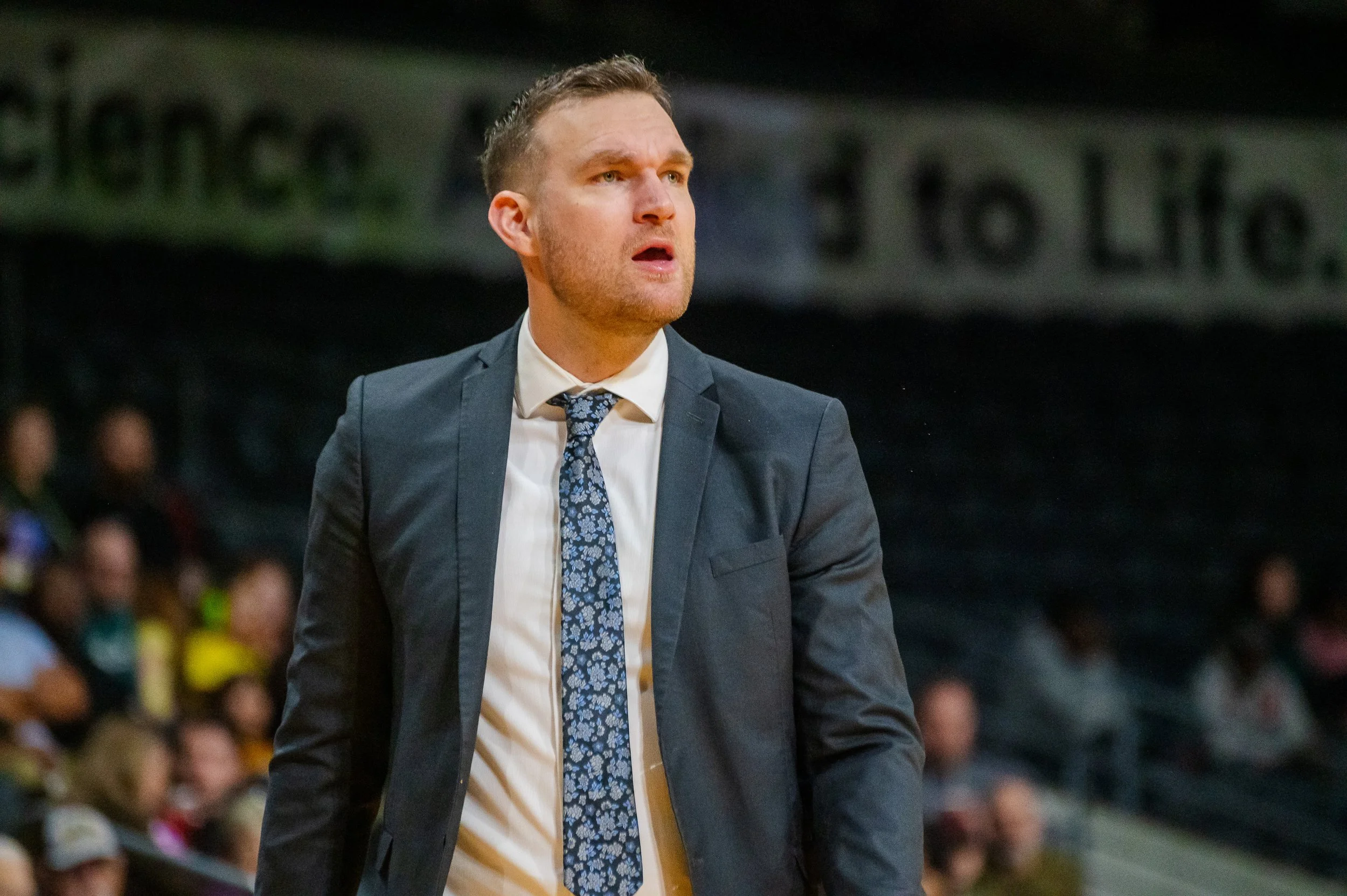






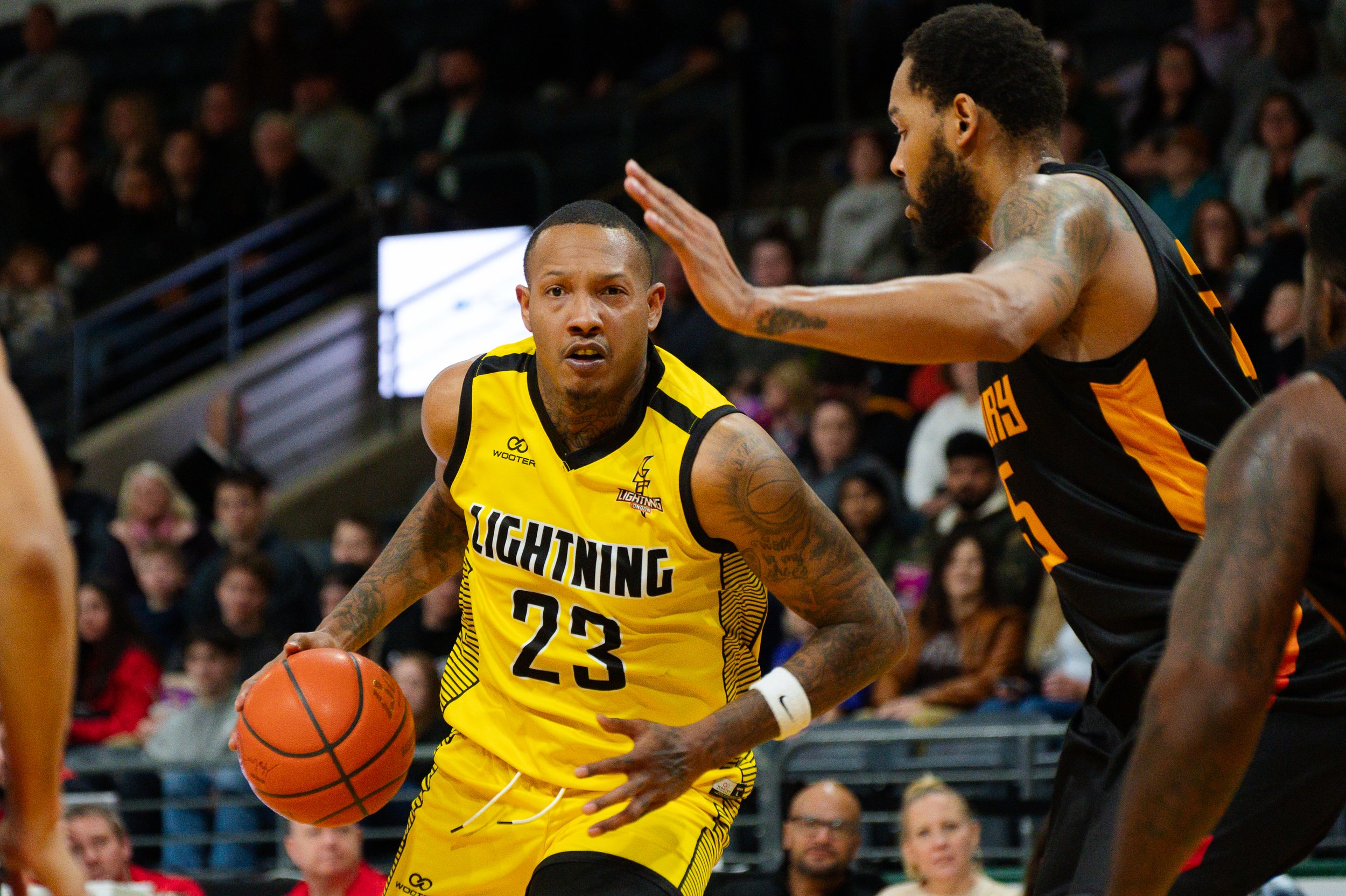
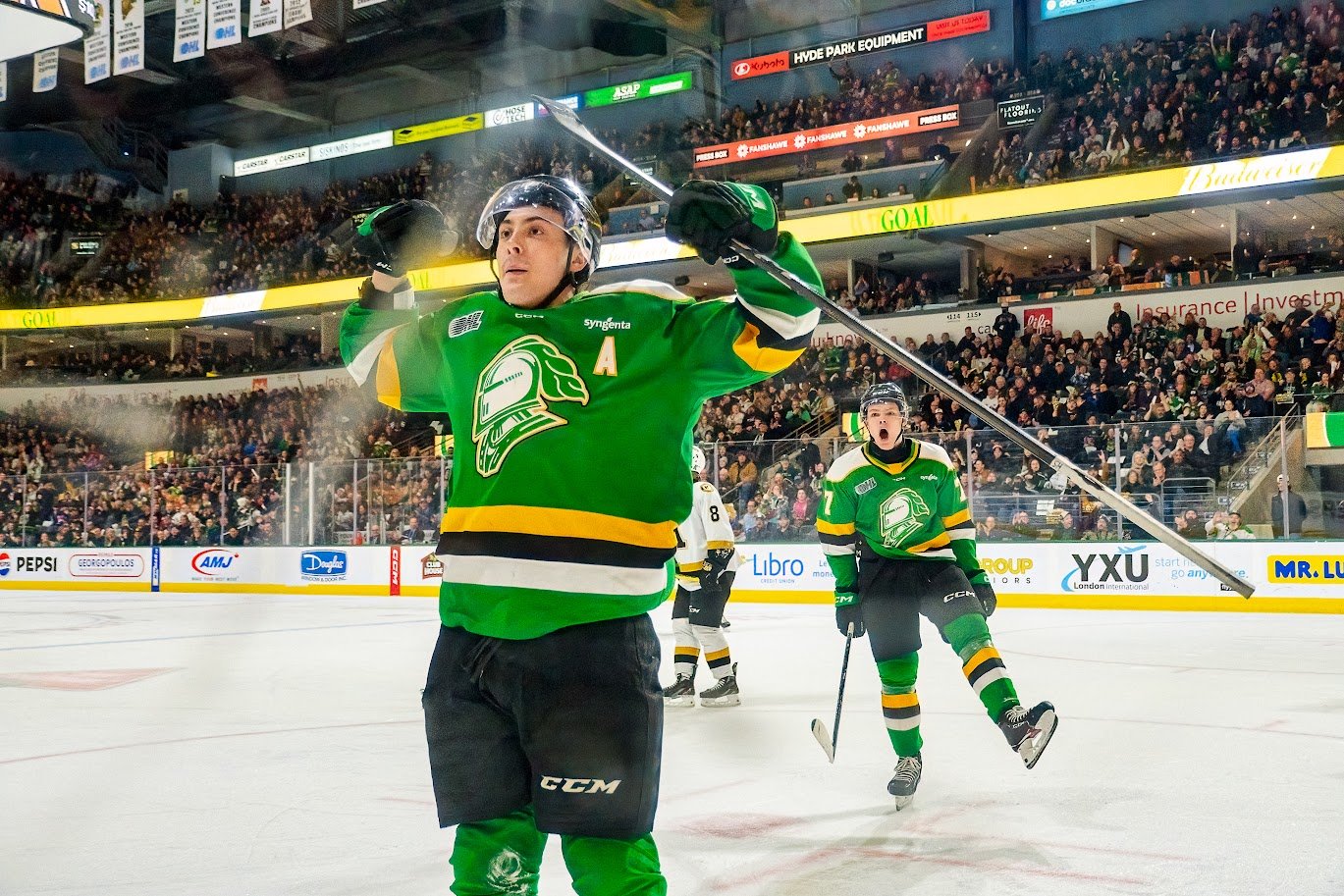
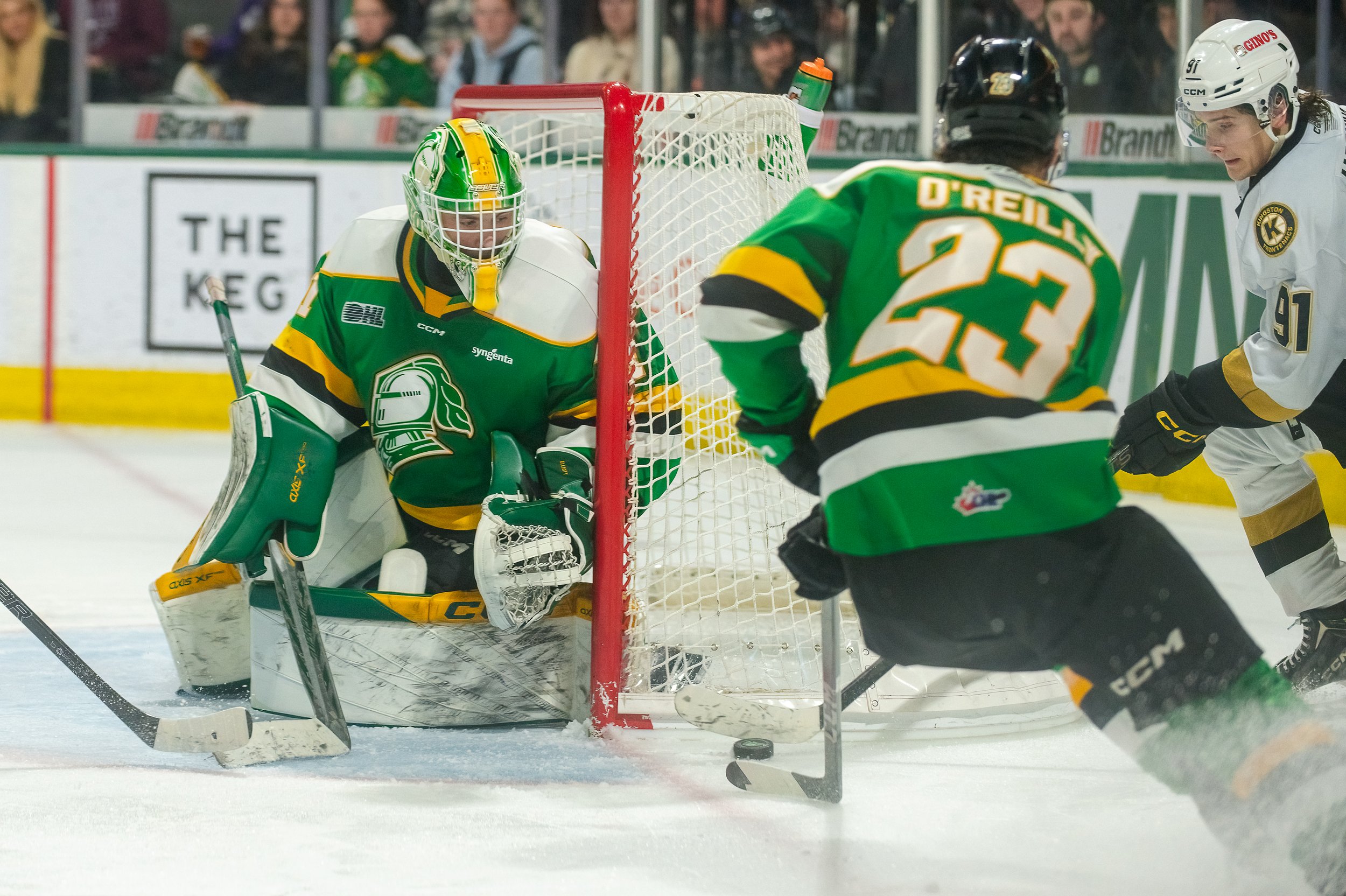
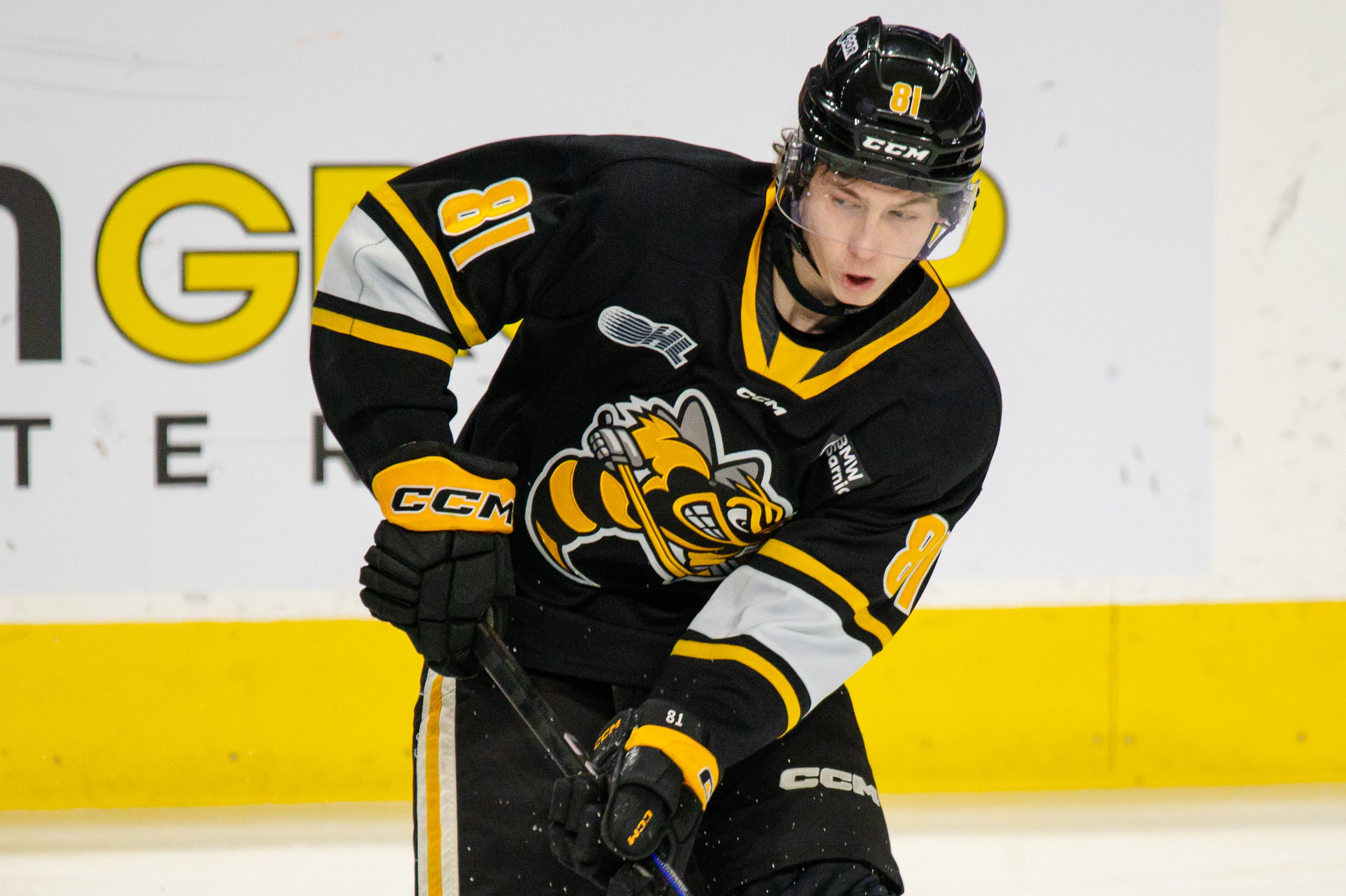

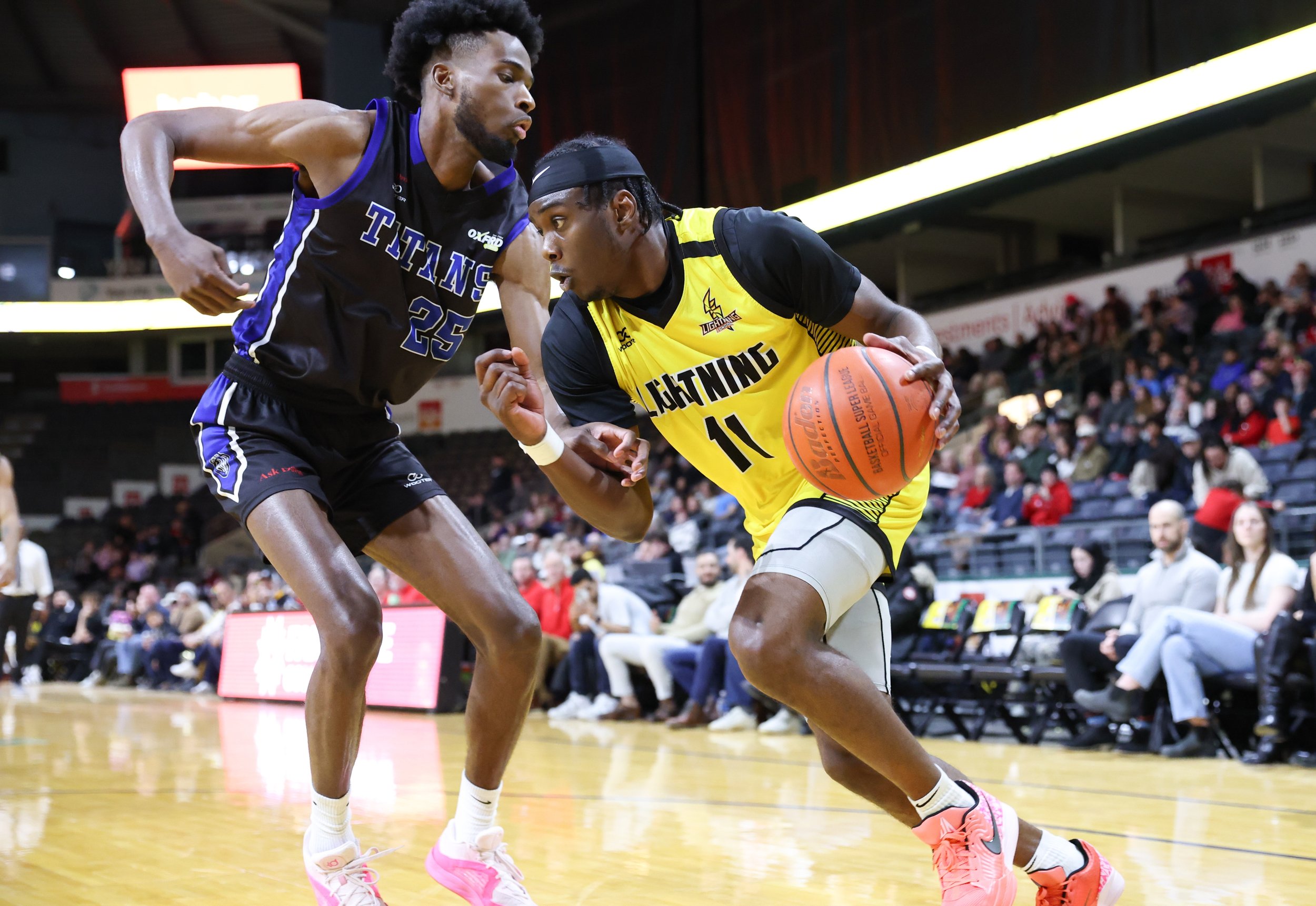


Around the Perimeter: London set for one-game playoff in New York. Winner moves on to semi; Coach Williams believes he’s found the right mix; Can Lightning conquer the Jackals’ den? …